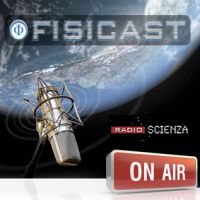|
Description:
|
|
What is artificial intelligence and machine learning? What's the difference? How about compared to statistics and data science? AI history. ## Resources - Wikipedia:AI (https://en.wikipedia.org/wiki/Artificial_intelligence) `article:easy` - The Quest for Artificial Intelligence (http://amzn.to/2kRd4Ie) (Free PDF? (http://ai.stanford.edu/~nilsson/QAI/qai.pdf)) `book:hard` AI history - Machines of Loving Grace (http://amzn.to/2kRcBWq) `audio:easy` AI history ## Episode What is AI? - Simulate any intellectual task - Goals ** Search / planning (eg chess) ** Reasoning / knowledge representation (eg Watson on Jeopardy) ** Perception ** Ability to move and manipulate objects ** Natural language processing (communication) ** Learning - Applications ** Autonomous vehicles (drones, self-driving cars) ** Medical diagnosis ** Creating art (such as poetry) ** Proving mathematical theorems ** Playing games (such as Chess or Go) ** Search engines ** Online assistants (such as Siri) ** Image recognition in photographs ** Spam filtering ** Prediction of judicial decisions ** Targeting online advertisements - When a technique -> mainstream, no longer AI: "AI effect" ** Pre-programming ** Weak AI vs Strong / AGI What is ML? - Pattern / Predict / Learn - Versus AI ** The "whole" (robotics, planning, etc) ** Professional: ML more interesting, subsuming other fields; ML is starter ** Conversation "AI when wow-ing or colloquial, ML when being professional. Like "coding" vs "software engineering"" - Versus Stats - Versus DataScience: professionally; ansense vs analytics History - Greek mythology, Golums - First attempt: Ramon Lull, 13th century - Davinci's walking animals - Descartes, Leibniz - 1700s-1800s: Statistics & Mathematical decision making ** Thomas Bayes: reasoning about the probability of events ** George Boole: logical reasoning / binary algebra ** Gottlob Frege: Propositional logic - 1832: Charles Babbage & Ada Byron / Lovelace: designed Analytical Engine (1832), programmable mechanical calculating machines - 1936: Universal Turing Machine ** Computing Machinery and Intelligence - explored AI! - 1946: John von Neumann Universal Computing Machine - 1943: Warren McCulloch & Walter Pitts: cogsci rep of neuron; Frank Rosemblatt uses to create Perceptron (-> neural networks by way of MLP) - 50s-70s: "AI" coined @Dartmouth workshop 1956 - goal to simulate all aspects of intelligence. John McCarthy, Marvin Minksy, Arthur Samuel, Oliver Selfridge, Ray Solomonoff, Allen Newell, Herbert Simon ** Newell & Simon: Hueristics -> Logic Theories, General Problem Solver ** Slefridge: Computer Vision ** NLP ** Stanford Research Institute: Shakey ** Feigenbaum: Expert systems ** GOFAI / symbolism: operations research / management science; logic-based; knowledge-based / expert systems - 70s: Lighthill report (James Lighthill), big promises -> AI Winter - 90s: Data, Computation, Practical Application -> AI back (90s) ** Connectionism optimizations: Geoffrey Hinton: 2006, optimized back propagation - Bloomberg, 2015 was whopper for AI in industry - AlphaGo & DeepMind |
 More
More
 Religion & Spirituality
Religion & Spirituality Education
Education Arts and Design
Arts and Design Health
Health Fashion & Beauty
Fashion & Beauty Government & Organizations
Government & Organizations Kids & family
Kids & family Music
Music News & Politics
News & Politics Science & Medicine
Science & Medicine Society & Culture
Society & Culture Sports & Recreation
Sports & Recreation TV & Film
TV & Film Technology
Technology Philosophy
Philosophy Storytelling
Storytelling Horror and Paranomal
Horror and Paranomal True Crime
True Crime Leisure
Leisure Travel
Travel Fiction
Fiction Crypto
Crypto Marketing
Marketing History
History

.png)
 Comedy
Comedy Arts
Arts Games & Hobbies
Games & Hobbies Business
Business Motivation
Motivation


